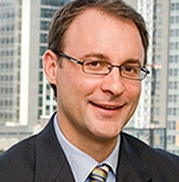 Study after study shows that patients trust their doctors’ advice on vaccination more than they trust anyone else on this topic. Yes, they talk to their family and friends – and they see some celebrities broadcast their views through the media – but when it comes to the crunch, they listen to their doctor.
Study after study shows that patients trust their doctors’ advice on vaccination more than they trust anyone else on this topic. Yes, they talk to their family and friends – and they see some celebrities broadcast their views through the media – but when it comes to the crunch, they listen to their doctor.
Dr Douglas Opel, Seattle Children’s Hospital, has been studying how physicians communicate with parents about childhood immunisation.
In this video interview, he explains that by beginning a conversation with a recommendation rather than an open question, the likelihood of the child being vaccinated is higher.
Communication skills can be learned and perfected but there are other factors at play too. Professor Eugenijus Laurinaitis, a neuroscientist from University of Vilnius, says nonverbal cues also play a key role.
For doctors to motivate their patients to take healthy decisions, such as vaccinating themselves or their children, they must genuinely understand and believe the benefits of what they recommend.
Interviews recorded at the ‘From Package to Protection’ conference hosted by Fondation Merieux
While the vast majority of people in developed countries follow recommended immunisation schedules, achieving herd immunity – which is essential for protecting those who are too young or too sick to be vaccinated – can require giving a vaccine to 95% of people (in the case of measles, for example).
Getting from 90% vaccine coverage to 95% coverage requires sophisticated approaches to communication from those whose impact is likely to be greatest – doctors, nurses, midwives.




